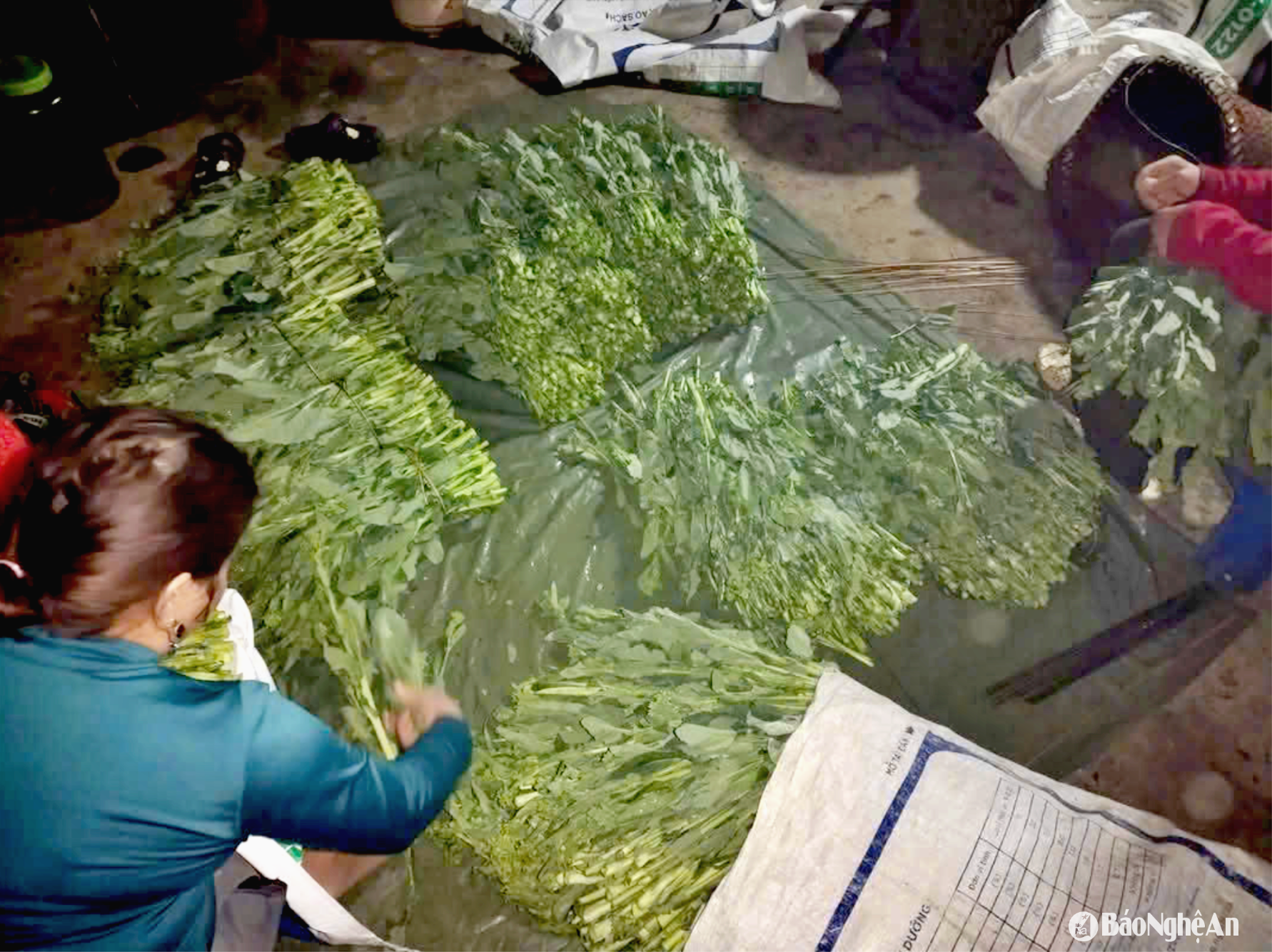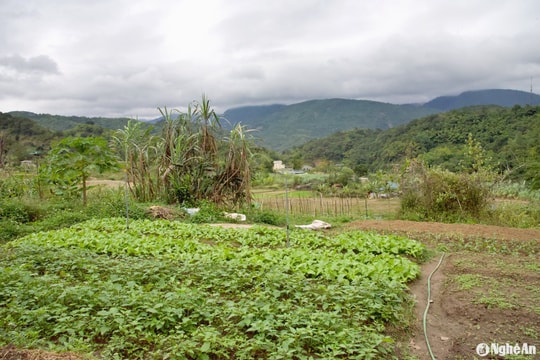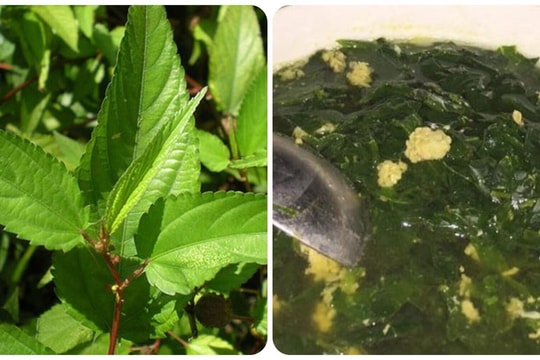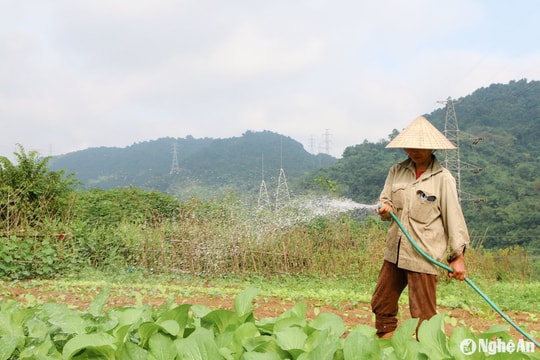Red light on mountain to pick mustard greens, farmers in highlands of Nghe An earn millions every day
The season of green mustard greens is in full swing on the high mountain slopes of Western Nghe An. People are busy harvesting and earning millions of dong every day.
These days, Ms. Ho Y Nhua in Dooc May commune, Ky Son border district is busier than usual when she has to wake up at 2-3 am to go to the field to pick mustard greens. Ms. Y Nhua said that in order to bring vegetables to the market and sell to traders on time, Ms. Nhua and other women prepare rechargeable lamps, baskets, and packaging from late afternoon, so that they can go to the field to pick vegetables at dawn.
.jpg)
Waking up when it was still dark, with the temperature only around 7-8 degrees Celsius, Ms. Nhua had to wear a warm down jacket, wrap a scarf around her, and go to the field with her sisters. The vegetable growing area is on a high mountainside, the higher the road, the steeper it gets. Because the field is quite far from home, in addition to riding a motorbike for about 10 minutes, they also have to walk and climb the hill for about 20 minutes to get there.
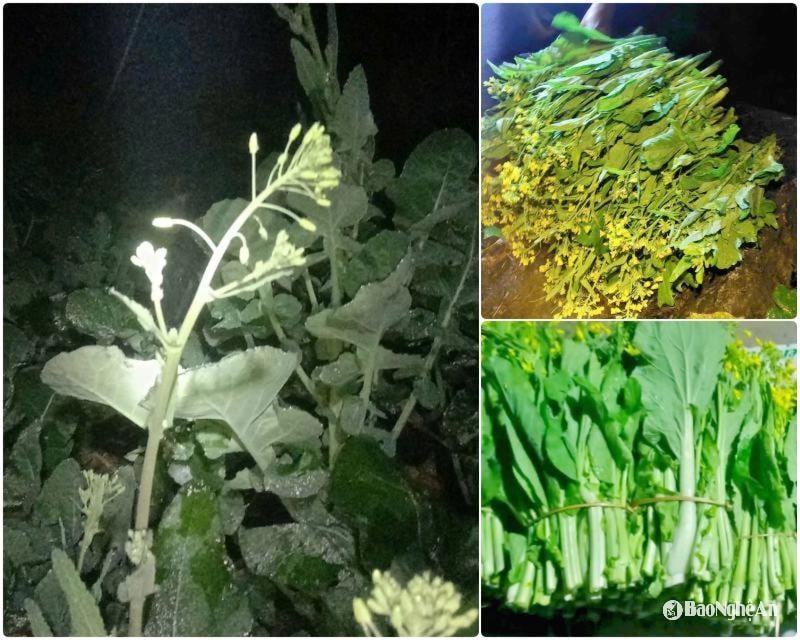
Returning home at dawn, Ms. Y Nhua said: “Today (March 12 - PV), my husband and I picked 80 bunches. On days off, my husband and I pick vegetables in the early morning and late afternoon and we can pick more than 100 bunches/day. The selling price is about 10,000 VND/bunch. This is the peak harvest season of the year.”
Although the people of the highland villages of Nghe An grow mustard greens all year round, the peak harvest season is in winter and spring. The mustard greens are a typical variety, suitable for the climate and terrain of high mountains. Especially in areas with cold, humid climates and altitudes over 1,000m above sea level.
.png)
In Dooc May commune, mustard greens are grown year-round and require almost no care. “This vegetable is very suitable for the soil and cold, humid climate here. After harvesting, people plant a new crop, only occasionally go to the fields to weed, and do not use any pesticides,” said Ms. Lau Y Du - President of the Women's Union of Dooc May commune.
Ms. Y Du added that during the harvest season, women who have vegetable gardens near each other often make appointments to go pick vegetables together before dawn to bring them to the market to sell, or to sell to small traders. Some women who are teachers or work in agencies or commune People's Committees also have to get up early to go to the mountains to pick vegetables in order to return to work on time.

When the vast mountain slopes are covered in green mixed with yellow flowers of mustard greens, it is also the time when the vegetable is at its most delicious and sweet. The mustard green fields are still wet with night dew, people gently cut the stems and leaves, tie them into bundles that are easy to hold, put them in prepared baskets or sacks and carry them home. Some women carry them straight to the market, selling them to passersby.
Households with 2-3 people picking in large quantities usually take the vegetables home, then pick off the yellow and old leaves and tie them into bundles. If one person is diligent in picking, he can harvest about 50-80 bundles a day.
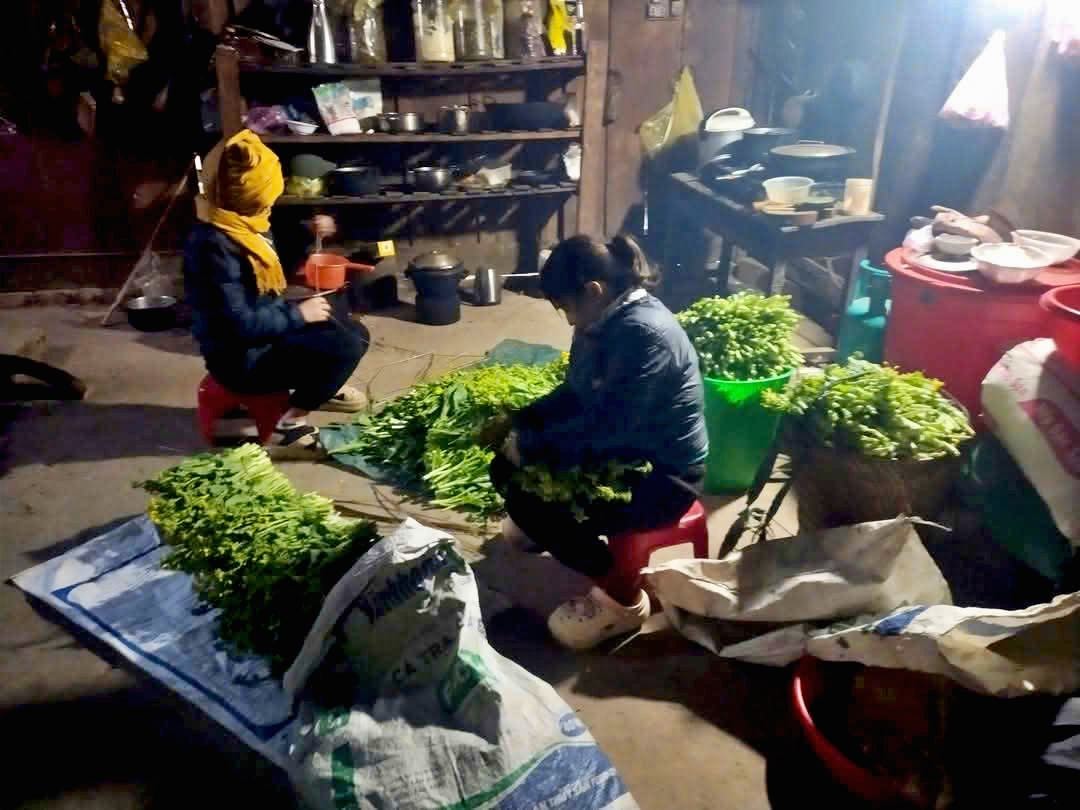
“We sell vegetables at the commune center or to traders for 10,000 VND/bunch. Since the beginning of the vegetable harvest season, I have sold about 30 million VND. There are still quite a lot of vegetables, but everyone is trying to harvest them because in the dry season, vegetables grow less well and productivity decreases,” said Ms. Ho Y Nhua.
Currently, households in Dooc May commune are maintaining about 10 hectares of mustard greens. Chairman of the Women's Union of Dooc May commune Lau Y Du said that maintaining mustard greens growing areas has helped many households have a good source of income.
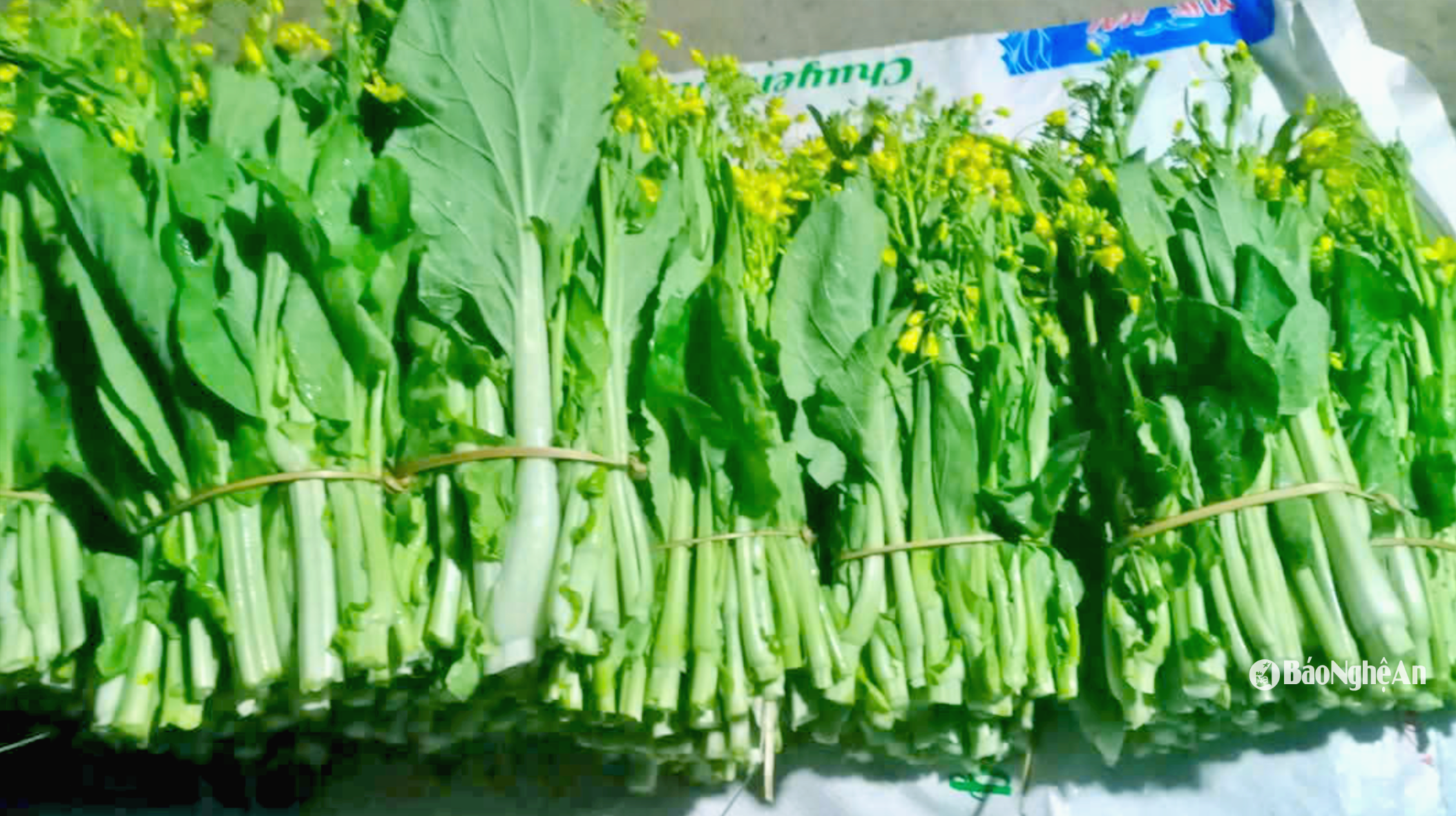
In particular, for more than 2 years now, the vegetable growing area on the high mountains in Dooc May commune has been supported and encouraged by the Project to develop key crops of the district, so people are more confident in increasing labor, production and complying with regulations on food hygiene and safety.
